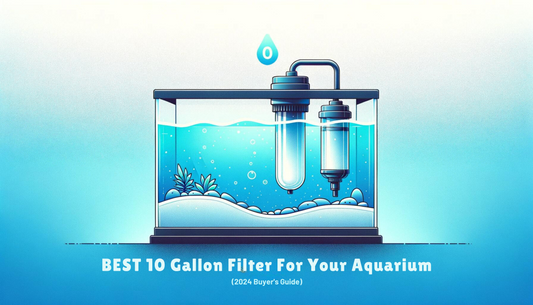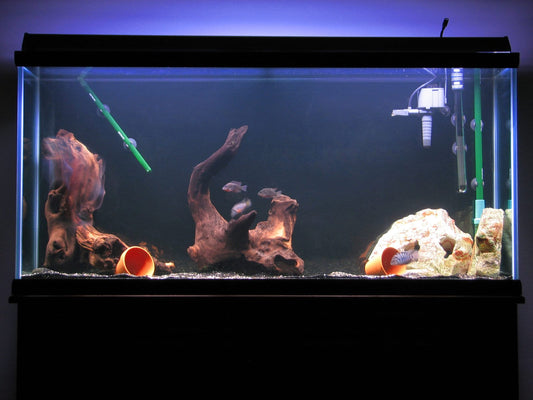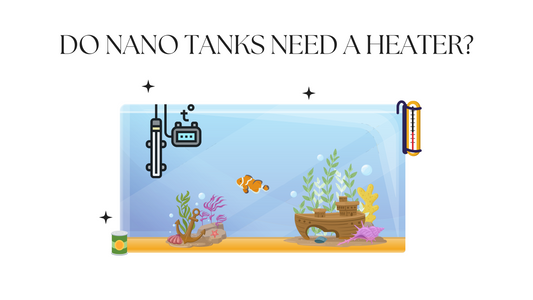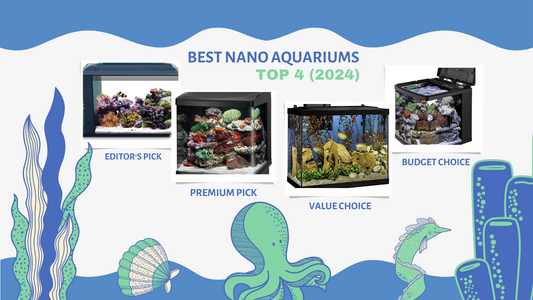Thank you
As a beginner after several decades ago I had guppies now in my senior year I want to start again 🙂 I welcome all the help I can get, please ☺️
Guppy Fish Care Guide

Almost anyone that has a freshwater aquarium has probably kept Guppies at one point. Guppies are among the world’s most widely distributed species of tropical fish, and one of the most popular to keep.
As Guppies come in so many different colors and patterns, they make a great choice for almost any tropical freshwater tank!
Guppy Fish Care and Information
| Characteristic | Detail |
|---|---|
| Temperament | Peaceful |
| Care Level | Easy |
| Color | Orange/ Brownish, while the females can be more silver-gray |
| Diet | Omnivorous |
| Adult Size | 2 – 3 inches |
| Lifespan | 4 – 8 years |
| Water Temperature | 71℉ to 82℉ |
| Water pH | 6.0 to 7.5 |
| Tank Size | 10 gallons |
Guppy Fish Care Overview
Guppies, Poecilia Reticulata, and especially Fancy Guppies, are beautiful, peaceful, and easygoing freshwater fish. One of the most interesting qualities about Guppies is that they are live-bearers, and will breed frequently if kept in a mixed gender group!
Guppies can grow as long as 2 to 2.5 inches and require a minimum of a 5-gallon tank. They can quickly reproduce and fill your tank with numerous young ones, so getting a larger tank can be a good step to take. Guppies are omnivores and will feed on a wide variety of food that comes their way.
Typical Guppy Fish Behaviour
Guppies are peaceful and easygoing fish that love to be in groups. They are not dormant swimmers, as you will see them moving around in the water almost at all times. If you see your guppy not swimming or hiding, it can indicate illness as it is unlike them.
Guppies are not aggressive, but males will defend their territories from other males. You can also see male Guppies wiggling their tail and chasing females around to impress them. Guppies are generally active fish that enjoy every bit of fun.
Guppy Fish Appearance
Guppies are beautiful-looking fish that come in different colors, shapes, and patterns. Some Guppies come in plain colors, while others come in patterns and stripes. They can have splashes, spots, or stripes of colors to complement their appearance.
Guppies gained their nickname, “rainbow fish,” from their perfectly mixed colors, so you can imagine how colorful they are. Females are usually bigger and less colorful than males, making it easy to differentiate them. They usually have a paler portion of their colors at the top and upper half of their body.
Guppies come in different colors, with some having metallic luster due to their colorless cells that reflect and cause an iridescent effect. Their tail shape can be triangular, fan-shaped, flag-shaped, spade-shaped, etc.
Guppy Life Span
Guppies are hardy fish and can tolerate a wide variety of conditions. The lifespan of a Guppy depends on how well you provide its needs and conditions.
Guppies will live for about 2 to 2.5 years under adequate conditions and requirements. They will attain sexual maturity at three months of age. Males usually reach sexual maturity when they reach one month of age in a warm tank.
Guppy Fish Size
Guppies can grow to about 2 to 2.5 inches under the right conditions. Males grow slightly smaller than females and reach about 1.4 to 2 inches, while females reach the larger size of about 2 to 2.5 inches.
If you feed your Guppies with the right type of foods, they will grow quickly and reach their maximum size around six months of age. You have to provide your Guppies with adequate food to attain their maximum size.
Sexing
How can you tell if a Guppy is male or female?
Differentiating male Guppies from female Guppies is quite easy to do. Female Guppies are bigger than males and less colorful. Females usually come in plain grey colors, while males have stripes, patterns, or spots of different colors.

Guppy Fish Tankmates and Compatibility
Guppies are peaceful fish that have a wide variety of compatible tankmates. You can keep many different kinds of fish in the same tank as Guppies, but there are some factors to consider.
Guppies are quite small compared to other fish, so you should not keep larger fish in their tank to avoid losing your Guppies. You also have to do away with fin nipping fish that can destroy your fish’s colorful fins. The best kinds of tankmates for Guppies are non-aggressive, non-territorial, peaceful, similar-sized fish with hardy properties.
Compatible tankmates for Guppy Fish include:
- Platies
- Mollies
- Corydoras Catfish
- Gouramis
- Bettas
Guppy Fish Care: Water Conditions
It is best you keep your Guppies under the right water conditions to ensure good health. Guppies are active and beautiful fish, so if you want to get the best of them, you need to provide them with top-notch water quality.
Temperature
Guppies like to stay in slighty cooler waters than some other tropical fish. The optimal temepratrue for Guppies is in the 72 – 78F range.
pH Level
The pH of your water is an essential water factor to consider. Guppies thrive in slightly acidic to slightly alkaline waters. The pH value of your water should range from 6.8 to 7.8.
Tank Setup for Guppy Fish Care
We need to consider certain things when selecting a tank:
- Guppies are active swimmers and will need enough space to perform their activities.
- Guppies love plants and decorations as they help create a replica of their natural habitat.
- They love daylight and will thrive in a minimum of 8 hours of lighting.
- They love to swim about almost at all times, so they require steady and slow water current.
Tank Size for Guppy Fish
Guppies are very active and love to swim. You need to provide a tank large enough to accommodate this allowing them to swim about freely. You also have to consider their growth when choosing the tank size for them, as they can grow to their maximum size in little time.
How many Guppies to keep in a 5-gallon tank?
You can keep two guppies in a 5-gallon tank without any problem. If you want to add more to the tank, you will need to get a larger tank to accommodate them. You have to make sure you do not overcrowd the tank, regardless of the tank size.

Guppy Fish Care and Diet
How often do Guppies need to be fed?
Guppies will love to eat a wide variety of food that passes them by. You can feed your fish 1 to 2 times a day, but make sure not to feed them more than what they can consume in 2 minutes. Ensure you do not overfeed them to prevent health or environmental complications.
What should I feed my Guppies?
Guppies are omnivorous fish and will eat almost anything you feed them. You can feed adult guppies with fish flakes, pellets, vegetables, live foods, dried foods, freeze-dried foods, etc. You can feed your Guppy fry with baby brine shrimps, pellets, fish flakes, etc. Whatever you feed your Guppies, you should ensure you choose only high-quality foods.
Breeding Guppies
Guppies are hardy fish and quite easy to breed under different conditions. Male guppies can start to mate when they reach a month old, but females will reach sexual maturity closer to three months of age.
Guppies are livebearers; they give birth to their young ones alive. They carry the eggs in them while the fry use nutrients from their egg sac to develop. When the eggs hatch, the mother then releases them directly into the water.
When a female Guppy is pregnant with eggs, a male Guppy will locate her and fertilize her eggs. Males have a way of telling a pregnant female from the others. During fertilization, the male makes brief contact with the female and shoots his package of sperm called spermatophores into her.
The female splits up the package into thousands of sperm, using it to fertilize her eggs. She can also store it and use it fertilizing other sets of eggs. She can be pregnant multiple times with only one fertilization.
After the Guppy births her young ones, you can remove her from the tank to provide adequate care and attention for the fry. Alternatively, you can put the fry into a fry box to keep them separate as they grow.
How to tell if a Guppy is pregnant?
Pregnancy in Guppies lasts for about 21 to 30 days, so you need to tell them when they are pregnant to provide them with adequate requirements. When a guppy is pregnant, you will start noticing her belly becoming bigger and rounder. You will also notice her gravid spot becoming darker and larger as the pregnancy progresses.
Do you keep Guppies?
If you still have questions or would like to show off your fish, be sure to join our Facebook Group to join the discussion!






comment